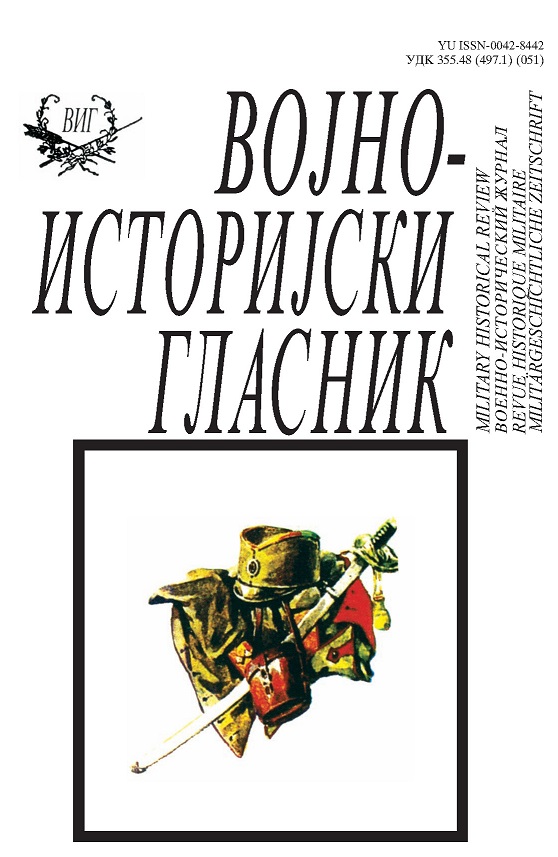Краљевина Срба, Хрвата и Словенаца и планирање државног удара у Бугарској, 1923–1925. године
Kingdom of Serbs, Croats and Slovenes and Plans for the coup d’etat in Bulgaria, 1923-1925
Author(s): Srđan MićićSubject(s): Military history, Political history, International relations/trade, Interwar Period (1920 - 1939), Migration Studies, Peace and Conflict Studies
Published by: Institut za strategijska istraživanja
Keywords: Bulgarian emigration; coup; foreign policy; Kingdom of SCS; 1923-1925; armed forces;
Summary/Abstract: After coup d’état in Bulgaria, 9 June 1923, and murder of Alexander Stamboliyski Yugoslav statesmen were convinced that members of the BANU were true supporters of South Slavs idea. They have decided to support Bulgarian Agrarian emigration and use them for the purposes of Yugoslav Foreign Policy. Ministry of Foreign Affairs saw strengthening international positions of Yugoslavia through BANU’s seizure of power in Bulgaria. Ministry of Internal Affairs and Chief General Staff were primarily considering possibilities to exploit agrarian emigration’s armed forces in combats against members of IMRO. Cooperation between BANU and BCP had placed Kingdom S.C.S. in ambivalent position. On one side, it supported Bulgarian communists as allies of Bulgarian agrarians in their struggle against regime of Alexander Tzankoff and King Boris III. In the same time, states authorities were alerted by contacts between Bulgarian communists and U.S.S.R., Comintern, members of CPY and information on existing plans for conduct of peasant-workers’ revolutions in the Balkans with aim to form peasant-soviet republics. Internal situation which was mainly burden with Serbian-Croat dispute was further more complicating Yugoslav government’s position when CRAP joined Peasant International in Moscow. Momentarily improvement in Yugoslav-Italian relations, throughout 1924, which has strengthened Yugoslav position in the Balkans and Danube basin, affected on more cautious work of government in Belgrade. While Italians have advised Hungarians and Bulgarians to abandon temporarily or for good illegal activities, Kingdom S.C.S. became circumspect in order not to arise European public with open support to Bulgarian emigrants. This change of state authority’s attitudes probably had more affected on canceling plans for Coup d’état in Bulgaria, than incident which has occurred between Bulgarian emigrants in camp outside Nish and was used to justify failure to fulfill obligations toward BANU and BCP. After May 1925, Ministry of Foreign Affairs and Voyislav Marinkovich have continued their relations with emigrants group Obboff-Todoroff and Lt Colonel Tanasiye Dinich with supporters of Atanasoff-Stoyanoff.
Journal: Vojnoistorijski glasnik
- Issue Year: 2014
- Issue No: 1
- Page Range: 203-232
- Page Count: 30
- Language: Serbian

